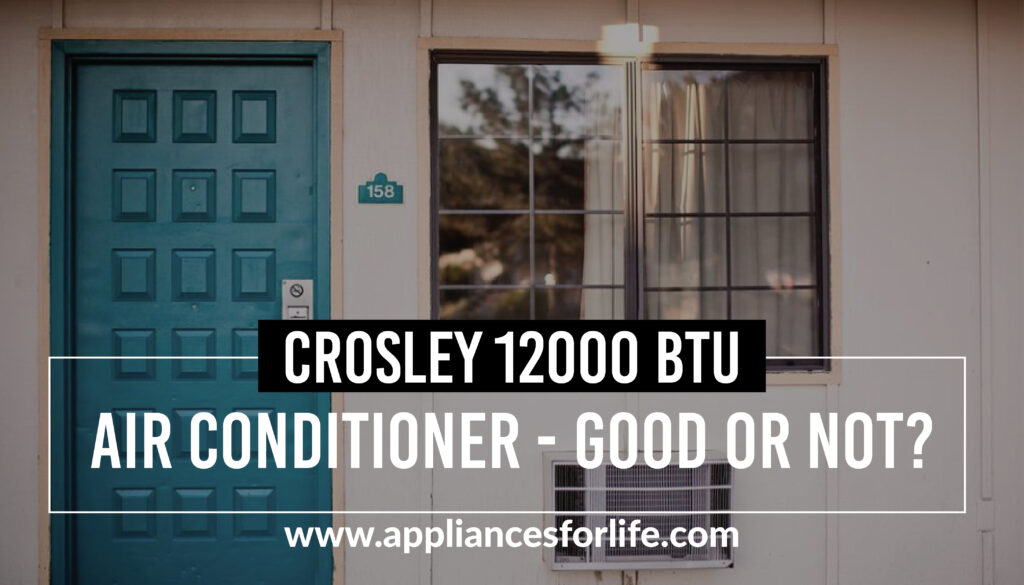- Since their innovation, air conditioners have helped us artificially the temperature of our environment. They become our most valuable asset, especially during summer when the weather is rather hot. Air conditioners serve the desired purpose only when they fit into the space where we want them- they have to fit with regard to size, cooling capacity, and even aesthetic design.
- An air conditioner's cooling capacity is one factor to consider before you purchase your air conditioner. BTU stands for British Thermal Unit and is the standard measurement parameter for the cooling capacity of an Air Conditioner. You need to know the BTU of an air conditioner to discern whether it will fit into your space.
As you scan through stores for a new air conditioner. You will certainly come across BTU. For you not to be left wondering what this means and for you to make a more informed decision while you take a pick. What does BTU mean, and how do you select the right amount of it for your home?
Table of Contents
Toggle
BTU stands for British Thermal Unit, which is the amount of energy or the measurement of heat required to raise 1 pound of water by 1 degree Fahrenheit. This is one time when we use the same measurement system in the United States that the British do. To demystify this rather technical definition, it is essential to simply understand that BTU is a relevant consideration when buying an air conditioner because it is the standard used to measure how many units of heat an air conditioner can remove. So you would use it to ensure you’re buying an air conditioning system that can remove sufficient heat from your space – otherwise, you will be sitting in a hot room even though the aircon is on!
Now, the importance of knowing the BTU of your air conditioner is not far-fetched – given that the BTU is the raw cooling capacity of an air conditioner, it adds that a higher BTU rating is desirable, depending on the size of the room where it is to be used. Even though a higher BTU is desirable, it is important to remember that a higher BTU rating may be able to cool your home more quickly in theory. However, your entire system is designed to pass a certain air volume. A higher capacity air conditioner does not increase the overall system capacity. Consequently, a larger BTU rating may lead to problems like a frozen system. In turn, this may lead to running a series of shorter cycles more frequently. These shorter cycles increase the cost of running your system and add unnecessary strain, leading to more repairs.
Larger units also cost more to install, so you will pay more for your system upfront. In addition, the minimum energy required to run a larger system is more than a smaller system. This means you end up paying higher operational costs without gaining additional benefits for your home.
An Easy Way To Calculate the BTU you need for your Space
It may surprise you to know that not everything around here is technical. As technical as the definition of BTU may be, the calculation of it to understand the right amount needed for your space does not pose any difficulty at all. All you have to do is to multiply the length of your room in feet by the width of your room in feet and then multiply that by 25. That will give you the BTU needed to cool your room properly. All it takes is a simple multiplication!
This is a good example: Most rooms, especially the HDB kind, are around 5 meters by 3 meters, give or take. First, we convert meters to feet, which gives us around 16 feet by 10 feet (to convert meters to feet, you can multiply by 3.3). Multiplying those two numbers together, we get 160. Then we take that and multiply again by 25 as mentioned above. That gives us 4000 BTU using the formula defined above. So to cool a standard HDB room would take an air conditioner with 4000 BTU of cooling power. It is that straightforward!
When You Don’t Pick The Right BTU
It is quite glaring that if you do not pick the right BTU, you have either picked one that is too high or too low. If you choose an aircon with a BTU that is too low, it will result in longer cooling times, which may result in a longer cooling time. Not only that, the cooling capacity of your air conditioner will be significantly impaired, and the overall effect of this will be an increased electricity bill. When the BTU is too low for a particular location where the air conditioner is situated, the air conditioner will struggle, causing it to expend more energy and burn electricity in the long run.
On the other hand, if your BTU is too high, what happens is that the cooling happens very rapidly. The moisture extraction does not keep up because, ordinarily, your aircon is supposed to lower the temperature and remove moisture from the air. Consequently, this will mean that while your room temperature is cooler, the moisture is still in the air and starts to condense. This can make you feel humid and sticky. One would think that perhaps choosing a larger BTU would then mean the opposite and cool a room much faster, which would be good. However, this is a common misconception, and there are actually downsides to choosing an oversized aircon.
Moreover, because the aircon is too powerful, it will have to stop its cooling cycle and start again frequently. This extra cycle creates an extra load on the compressor, and this causes your aircon lifespan to be reduced. Hence, it is absolutely critical that you pick just the right BTU for your room.
Other Factors to Consider When Picking the BTU for your room
You will probably not find every room with the same features; many will have different floor types while others will have more sun exposure than the other. And these factors greatly affect the optimal BTU of an Air Conditioner. This section will outline the other factors you should consider when choosing BTU and how to adjust your optimal BTU accordingly.
- Floor of House: Typically, the top floor of the house will be exposed to higher heat and sunlight that the other floor. This is because it is closer to the roof, which absorbs and transmits heat from direct sunlight. Meanwhile, the top floor would insulate the floors below from that direct sunlight. As such, if your room is on the top floor, we would recommend that you adjust the BTU upwards by 10%.
- Degree of Shade: The degree of shade you get in your room is an important consideration while choosing the level of your BTU. When your room gets a lot of sun rays, it will affect the amount of humidity that the room accumulates and thus has to be removed. A standard BTU recommendation for a room like this is to increase the cooling BTU required by 10% during the hotter times of the day. However, if the room mostly faces the shade or does not get its share of direct sunlight, you can reduce the BTU estimate by 10%.
- Number of persons in the room: It is quite easy to tell why this is an important consideration to make. Our bodies generate some amount of heat. Hence, the number of ‘bodies’ present in a particular location will determine the amount of heat that is felt in that location. This is why it is so hot in a packed concert. If you typically have a lot of people in a room, e.g., a living room, bedroom, classroom, or conference room, you will have to factor that into your BTU calculations. In general, the calculations we have assume 2 people in the room. If you have more than 2 people, the rule of thumb here is to add 600 BTU per extra person you expect the room to handle.
- Heat generated by Home Appliances: Some home appliances generate a lot of heat when they are turned on. When this happens, the room temperature may increase, requiring an increased BTU. Hence, if you are calculating the BTU for your kitchen, which will have a lot of heat-generating items like the stove, the fridge, ovens, etc., then we would want to take into account that is heat that the air conditioner has to remove. So in these cases, we recommend adding 4000 BTU to the abovementioned number for rooms like the kitchen.
5. Ability to Close Off Cooling Space: You may have some adjoining rooms in your apartment. Your bedrooms may be connected to another room without a door or any other demarcation separating the rooms. In these cases, you would want to add the size of both rooms together to calculate the BTU. This is because the air will circulate between the two rooms, and the real load on your air conditioner is actually the sum of the volumes.
We hope this guide explains what BTU is, why it matters in choosing air conditioners and helps you choose the best air conditioner for your needs!
How Many BTU For 12X12 Rooms?
By measuring the British Thermal Unit (BTU), you can precisely tell how efficiently the air conditioner will operate. Usually, a 12 x 12 room needs 5,000 BTU of cooling capacity when used by two people. If the space is not getting direct sunlight, you only need 4,500 BTU. However, depending on how many people use the room, it can take upwards of 6,000 BTU to cool a 12 x 12 space. Knowing the precise BTU you need helps the AC unit operate at its highest efficiency. As a result, you’ll expect the AC unit to provide comfort and cost-efficiency.
Crosley BTU 1200 Air Conditioner and other BTU Air Conditioners
If you are wondering how good a Crosley BTU air conditioner is and how long it will serve you. This section focuses on a brief review of the product to help you make an informed decision when you are set to purchase your Crosley BTU air conditioner.
Generally speaking, following EPA’s minimal standard of “20 BTU per square feet,” 12000 BTU air conditioners can efficiently cool spaces between 400 and 600 square heat. Models in this class are a great choice for large rooms, kitchens, large spaces with high spaces, and mid-sized apartments, depending on their EER and Energy Star status. Many models in this class also have features like remote control, LED display, automatic mode, sleep mode, eco mode, and Wi-Fi connectivity. These features are worth considering when looking for the right fit for the room you want to cool.
Crosley CTWMS12B2 12,000 BTU Through The Wall Air Conditioner 220V
As clearly stated, this Air Conditioner’s cooling capacity is 12000 British Thermal Units. It is one of the efficient products of Crosley; in case you were wondering- what did Crosley invent? It consumes about 220 to 230 volts and measures approximately 20.3 in-depth, 24.2 inches in Width, and 14.5 inches in Height.
This air conditioner has electronic controls that allow you to maneuver the air conditioner’s settings to your taste easily. It also has a three-fan speed, an energy saver, and a 24 Hour On and Off Timer.
The GE AHEK12AC air conditioner
The GE AHEK12AC air conditioner is an excellent pick for users needing granular control over their climate and comfort in a small apartment or mid-sized office environment. This model features a sturdy design with easy installation and maintenance. With a complete repair appliance kit, you can easily carry out a clean installation of this BTU air conditioner.
In addition to a simple setup and durable side panels, the GE AHEK12AC air conditioner delivers next-level comfort and control for users needing advanced cooling. This AC unit works with the SmartHQ app, allowing users to monitor, schedule, and control the unit anywhere. Additionally, this model works with services like Amazon Alexa and Google Assistant for voice control and improved smart home integration. Lastly, this model features multiple fan speeds to determine a user’s desired temperature.
FAQs
Is 12,000 BTU Too Much?
It depends on the size of the room, but air conditioners typically have a cooling capacity ranging from around 5,000 to 12,000 Btu. Thus, a 12,000 BTU air conditioner should be fine in a room size of 450 to 550 square feet. Furthermore, a 12,000 Btu AC unit could chill a 550 square feet space measuring 25 by 20 square feet. However, you will also consider the size of your entrances and windows in a realistic BTU calculation.
Can you use a 12000 BTU air conditioner in a small room?
As mentioned above, air conditioners generally have a cooling capacity ranging from 5,000 to 12,000 BTU. The latter is too high for a small room. However, small is relative, and this depends on how small your room really is- a 12,000 BTU air conditioner should be fine in a room size of 450 to 550 square feet. Furthermore, a 12,000 Btu AC unit could chill a 550 square feet space measuring 25 by 20 square feet. However, you will also consider the size of your entrances and windows in a realistic BTU calculation.
Which brand of an air conditioner is best?
Good or ‘best’ is a very relative term. What is good for me may not be good for you. Moreover, you may not share the same opinion as me concerning what is best. There are great air conditioner brands like; LG, Samsung, Midea, etc. You may need to look into each specific benefit to find out which you would rather choose.
17 MINUTES
ESTIMATED TIME DESIGNING AND UPLOADING THIS ARTICLE
7 HOURS
ESTIMATED TIME RESEARCHING AND WRITING THIS ARTICLE
You Might Also Like

HOW TO REMOVE CHEMICAL STAINS FROM STAINLESS STEEL SINK
As opposed to what many people of stainless steel sinks, they can also get stained too. Stainless sinks can be affected by different stains and we’ll be looking at each of those stains in this article. We’ll also be discussing the steps on how to

Above Stove Microwaves to Heat Your Food and Meet Your Needs
Above stove microwaves are generally viewed as outdated these days, but they still have value. When you want to heat up leftovers or a meal for yourself in a hurry, having an above stove microwave can be the difference that allows you to better fit meals into your busy

Cuisinart Pressure Cooker Recipes to Amaze Your Taste Buds
Cuisinart Pressure Cooker Recipes Cuisinart pressure cooker recipes are a great way to feed a family or even a dinner party! It’s also a great option for those who like to multitask when they cook, as the independent workings of the pressure cooker allows for

How to Fix a Leaky Washing Machine?
Regarded as one of the most important household appliances of the 21st century, the washing machine has amassed so much popularity in the past few years. If you have a dripping washing machine in your laundry room, knowing how to fix a leaky washing machine

Best Cleaner for Electric Stovetop
Electric stovetops are often built with materials that can get stained easily and if not properly maintained, might cause the stovetops not to work efficiently, and even get damaged. To prevent this, we’re going to be discussing the best cleaners for your electric stovetop. No

Where to Shop – Our Choice of Appliance Outlet Stores
Are you in need of appliances but don’t know where to shop? Do you need something simple like an under the counter microwave or something a little more complicated like an electric stovetop or a gas cooktop? If you do then don’t stress, we are

Top Appliance Repair Companies
It’s okay for your appliances to need repairs at some point, after all, they’re not built to last forever. However, when this happens, it’s very important you have the right knowledge on how to repair them or you know the best appliance repair companies. This

4 Of The Best Kitchenaid Refrigerators on the Market
Open-box appliances are the best option for you if you are looking for top quality at a relatively cheap rate. No appliance originally is an open-box. It only becomes so after it must have been returned with some blemish found on it. Hence open box

Top 5 Best Coffee Maker Brands
Coffee making has now become an important part of American culture. The rise of Starbucks further proves how huge coffee is to the American people. If you’re on the market for a new coffee maker, the brand of the machine is one of the factors

Everyone needs a microwave for basic cooking, but those with little space may be limited to purchasing the best small microwave they can afford. The great thing about a small microwave is the amount of counter space it saves you while still cooking your food

